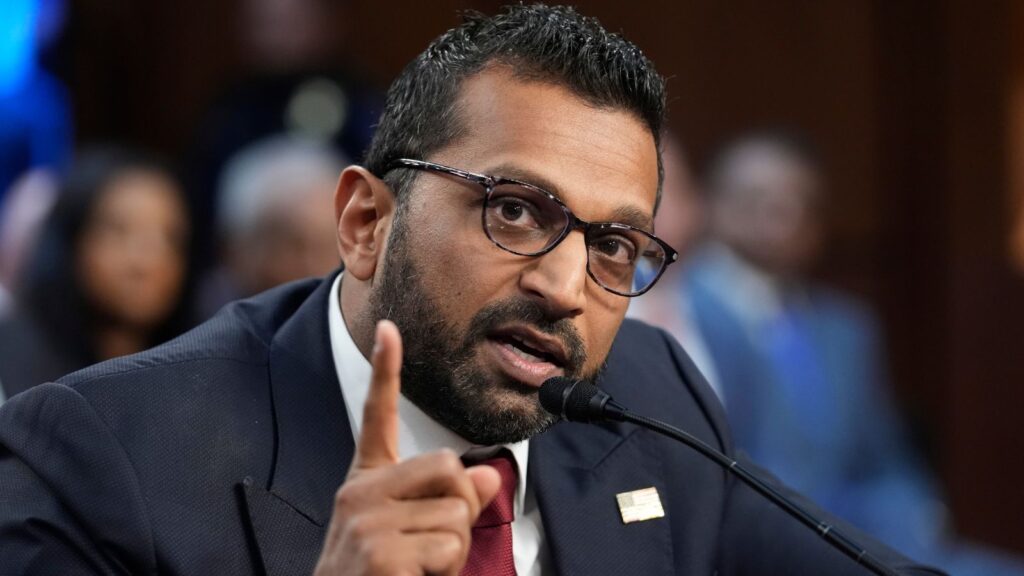
In the ever-evolving landscape of American politics, few figures have sparked as much debate as Kash Patel. A lawyer, former federal prosecutor, and staunch ally of Donald Trump, Patel has risen from relative obscurity to a pivotal role in the U.S. government. As of February 2025, he serves as the ninth Director of the Federal Bureau of Investigation (FBI), a position confirmed by a narrow Senate vote of 51-49. Known for his fierce criticism of the so-called “deep state” and his unwavering loyalty to Trump, Patel’s journey is one of ambition, controversy, and a relentless drive to reshape national security. Let’s explore who Kash Patel is, his career milestones, and why he’s a polarizing figure in 2025.
Thank you for reading this post, don't forget to subscribe!
Early Life and Background
Born Kashyap Pramod Vinod Patel on February 25, 1980, in Garden City, New York, Patel is the son of Gujarati Indian immigrants who fled Uganda in the 1970s amid Idi Amin’s repressive regime. Raised in a Hindu household, Patel’s family instilled in him a strong sense of identity and resilience. His father worked as a financial officer in an aviation firm, grounding the family in middle-class values. Patel’s early education took place at Garden City High School, followed by a Bachelor’s degree in History and Criminal Justice from the University of Richmond in 2002. He later earned a law degree from Pace University in 2005 and a certificate in International Law from University College London in 2004.
From Law to National Security
Patel’s career began as a public defender in Florida, where he handled high-stakes cases involving murder, drug trafficking, and cash smuggling. Colleagues recall him as competent but unremarkable, with a growing disdain for federal prosecutors—a sentiment that would later define his worldview. By 2013, he transitioned to the U.S. Department of Justice’s National Security Division as a terrorism prosecutor, working closely with Joint Special Operations Command. His legal acumen caught the eye of Rep. Devin Nunes, then-chairman of the House Intelligence Committee, who hired Patel as senior counsel in 2017.
It was here that Patel’s trajectory shifted dramatically. Tasked with investigating alleged Russian interference in the 2016 election, Patel co-authored the infamous “Nunes Memo” with Rep. Trey Gowdy in 2018. The memo accused the FBI and DOJ of bias in their surveillance of Trump campaign aide Carter Page, fueling Trump’s narrative of a “deep state” conspiracy. While the DOJ’s Inspector General later found procedural errors in the FBI’s actions, Patel’s conclusions leaned heavily into conspiracy territory, marking the start of his transformation into a Trump loyalist.
Rise in the Trump Administration
Patel’s work with Nunes earned him a spot in Trump’s National Security Council in 2019 as Senior Director for Counterterrorism. His rapid ascent continued—by 2020, he was Chief of Staff to Acting Defense Secretary Christopher Miller, a role where he challenged intelligence agencies like the CIA and NSA. Rumors swirled that Trump considered him for deputy CIA director, a move thwarted by then-CIA Director Gina Haspel’s resistance. Patel’s tenure was defined by his push to declassify documents and expose what he saw as governmental overreach, though critics argue his actions served Trump’s personal agenda rather than national interest.
Post-Trump Ventures and Controversies
After Trump’s first term ended in 2021, Patel didn’t fade into obscurity. He launched Fight With Kash, a nonprofit rebranded as the Kash Foundation, aimed at supporting whistleblowers and “America First” causes. The foundation also peddled merchandise—think “K$H” socks and Trump-themed playing cards—blurring the line between activism and profiteering. Patel authored Government Gangsters (2023), a memoir railing against the “deep state,” and a children’s trilogy, The Plot Against the King, casting himself as a wizard aiding “King Donald” against foes like “Hillary Queenton.”
His public persona grew through appearances on right-wing podcasts, where he flirted with QAnon rhetoric—signing books with “WWG1WGA” (a QAnon slogan)—despite later denying any affiliation during his FBI confirmation hearing. Patel’s critics, including Democrats and former colleagues, point to his thin resume, lack of senior law enforcement experience, and inflammatory statements, like vowing to turn FBI headquarters into a “museum of the deep state.”
FBI Director: A Historic Appointment
On November 2024, Trump nominated Patel to replace Christopher Wray as FBI Director, a decision that sent shockwaves through Washington. Confirmed on February 20, 2025, Patel became the first Indian-American and Hindu to lead the agency. His Senate hearing was contentious—Democrats grilled him on his loyalty to Trump, his “enemies list” from Government Gangsters (featuring Biden, Clinton, and others), and his election fraud claims. Patel deflected, insisting he’d uphold the Constitution, not political bias.
Republicans hailed him as a reformer, while Democrats warned of a politicized FBI under his watch. His agenda includes transparency, dismantling migrant crime networks, and tackling human trafficking—goals Trump touted on Truth Social. Yet, questions linger about his ties to foreign clients and a fashion company with Chinese roots, raising security concerns.
Why Kash Patel Matters in 2025
Kash Patel’s story is one of immigrant grit, legal savvy, and polarizing ambition. To supporters, he’s a patriot dismantling a corrupt establishment. To detractors, he’s a sycophant bent on weaponizing the FBI for Trump’s vendettas. At 44, his influence is undeniable—whether reshaping the FBI or pushing “America First” ideals, Patel is a lightning rod in a divided nation.
What do you think of Kash Patel’s rise? Is he the reformer America needs or a threat to its institutions? Share your thoughts below!
